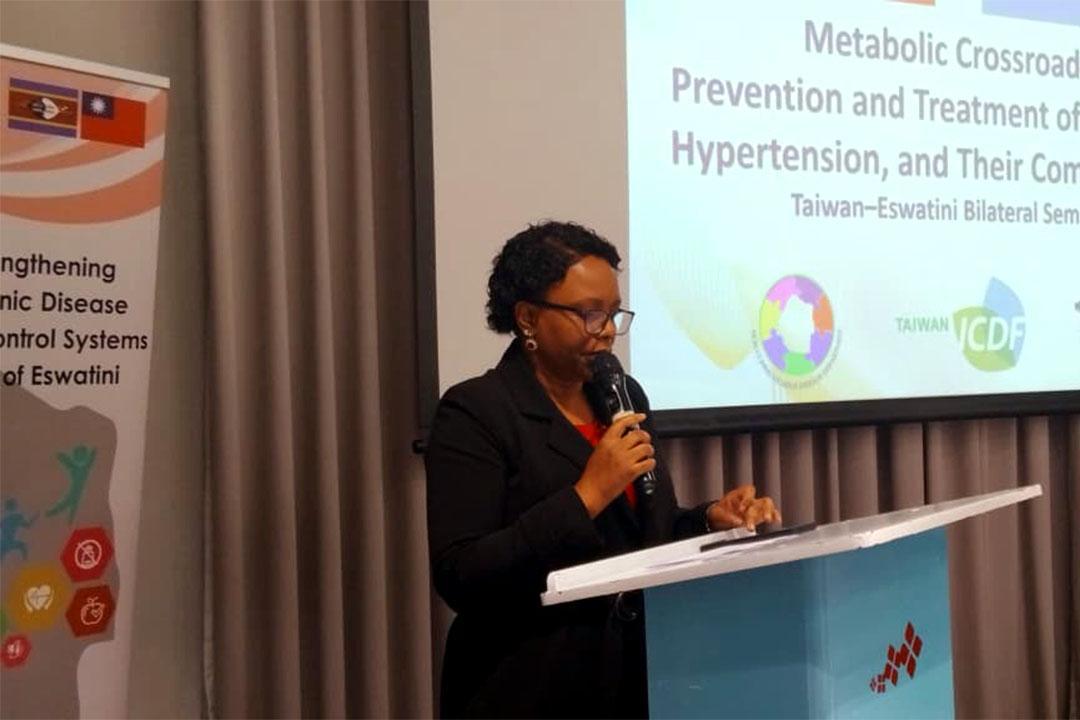Africa-Press – Eswatini. Director of Health Services Dr Velephi Okello has issued a passionate call to clinicians across Eswatini to take the lead in the fight against diabetes, emphasising the urgent need for early detection, integrated care, and stronger surveillance systems to curb the disease’s growing impact.
Speaking during the second session of a medical seminar held on October 17, 2025, at the Hilton Garden Inn, titled “Metabolic Crossroads: Prevention and Treatment of Diabetes, Hypertension and Their Complications,” Dr Okello described the escalating burden of diabetes as “alarming” and said it demands immediate, coordinated action from frontline health professionals.
“Delayed diagnosis is not just a clinical oversight — it is a missed opportunity for prevention and a gateway to complications,” she said. “By the time many patients reach our facilities, they are battling advanced neuropathy, retinopathy, renal failure, or cardiovascular disease. These are not just medical conditions; they are stories of lost productivity, fractured families, and preventable suffering.”
Clinicians at the Heart of Change
Dr Okello urged clinicians to play a more proactive role in diabetes prevention and management by integrating routine screening into all adult consultations and adopting a patient-centred approach that connects primary care, nutrition, mental health, and specialist treatment.
“You, our clinicians, are the heartbeat of this transformation,” she said. “Your vigilance, compassion, and clinical judgment are the difference between early intervention and irreversible damage.”
She also called for improved case reporting, stronger data collection, and enhanced collaboration between community health workers and hospitals.
“This is not just about treating diabetes,” she added. “It is about transforming how we deliver care.”
Rising Numbers Demand Urgent Action
According to the 2024 WHO STEPS survey, the prevalence of diabetes in Eswatini has risen from 3.1% in 2014 to 3.7% in 2024. While the increase may seem small, Dr Okello cautioned that many cases remain undiagnosed until complications set in.
“We must ask ourselves how many of these outcomes could be avoided with timely screening, early intervention, and integrated care,” she said.
Globally, over 537 million adults are currently living with diabetes, a figure projected to rise to 640 million by 2030, with the steepest increases expected in low- and middle-income countries.
Knowledge Exchange and Partnerships
The seminar, hosted by the Ministry of Health in collaboration with the National Taiwan University Hospital (NTUH) Hsin-Chu Branch and supported by Taiwan ICDF, brought together local clinicians, researchers, and international experts to share strategies for tackling non-communicable diseases.
Among the visiting experts were Dr Sung-His Huang, Dr Kang-Chih Fan, and Dr Fan Chou, whose expertise in endocrinology and metabolic disorders contributed to intensive training sessions for Eswatini’s health professionals.
“The Ministry is deeply honoured to welcome our partners from Taiwan,” said Dr Okello. “Your presence and technical expertise reflect the depth of friendship and cooperation between Eswatini and the Republic of China (Taiwan).”
“Act Now, Save Lives”
In her closing remarks, Dr Okello appealed to health workers to act with urgency and determination.
“Let us not wait for complications to compel action,” she said. “Let us act now, with unity and belief that diabetes can be prevented, treated, and controlled. Together, we can rewrite the narrative — from late-stage complications to early detection, from fragmented care to integrated solutions, and from despair to hope.”
For More News And Analysis About Eswatini Follow Africa-Press







